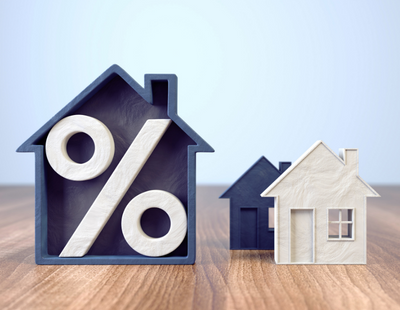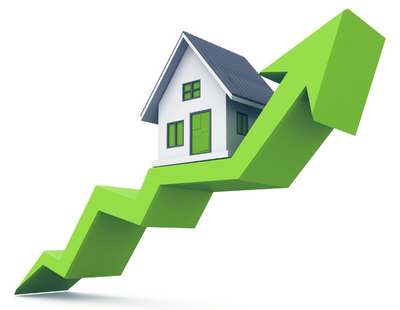A lack of supply and mortgage affordability remains a challenge for buyers as average house prices dipped slightly on a monthly basis in June, Halifax data shows.
The latest Halifax House Price Index shows that while annual price growth rose for the seventh consecutive month, typical values dropped by 0.2% on a monthly basis.
It follows two months of flat growth and suggests the market failed to benefit from its usual spring bounce.
The average property in the UK now costs £288,455 – down 0.2% between May and June and up 1.6% annually.
Northern Ireland recorded the strongest property price growth of any nation or region in the UK, rising by 4.0% on an annual basis in June, up from3.3% the previous month, Halifax said.
The average price of a property in the country is now £192,457.
In England, the steepest rate of house price inflation was found in the North West, up by 3.8% over the year, now standing at £231,351.
Eastern England was the only region or nation across the UK to register a decline in house prices annually, where they now average £328,747, down 0.9% in June on an annual basis. London continues to have the most expensive property prices in the UK, now averaging £536,306, up (+0.9%) compared to last year.
Amanda Bryden, head of mortgages for Halifax, said: “This continued stability in house prices – rising by just +0.4% so far this year – reflects a market that remains subdued, though overall activity has been recovering. For now it’s the shortage of available properties, rather than demand from buyers, that continues to underpin higher prices.
“Mortgage affordability is still the biggest challenge facing both homebuyers and those coming to the end of fixed-term deals. This issue is likely to be eased gradually, through a combination of lower interest rates, rising incomes, and more restrained growth in house prices.
“While in the short-term the housing market is delicately balanced and sensitive to the pace of change to interest rates, based on our current expectations property prices are likely to rise modestly through the rest of this year and into 2025.”
Commenting on the index, Tom Bill, head of UK residential research at Knight Frank, said: “Stubbornly-high mortgage rates and the uncertainty of a general election means the UK housing market has not experienced a particularly strong seasonal bounce this spring.
“We expect trading volumes to increase from the autumn as a rate cut becomes imminent and relative calm returns to Westminster. A Labour victory will have little bearing on what happens in the property market in 2024 and our forecast of an average 3% UK rise is unchanged. ”
Nathan Emerson, chief executive at agency trade body Propertymark, added: “The announcement of a general election last month may have caused movement in the housing market to slow down, but now that we know we have a new government with an overall working majority, Propertymark remains optimistic that house prices will start to rise during the summer months, which is a naturally busy time for the housing market.
"Beforehand, it would be good for the new UK Government to clarify what its housing policies are going to be quickly, and a rumoured interest rate cut from the Bank of England hopefully becoming a reality in August would help trigger a substantial amount of confidence in the housing sector yet again.”















.png)


.png)




Join the conversation
Be the first to comment (please use the comment box below)
Please login to comment